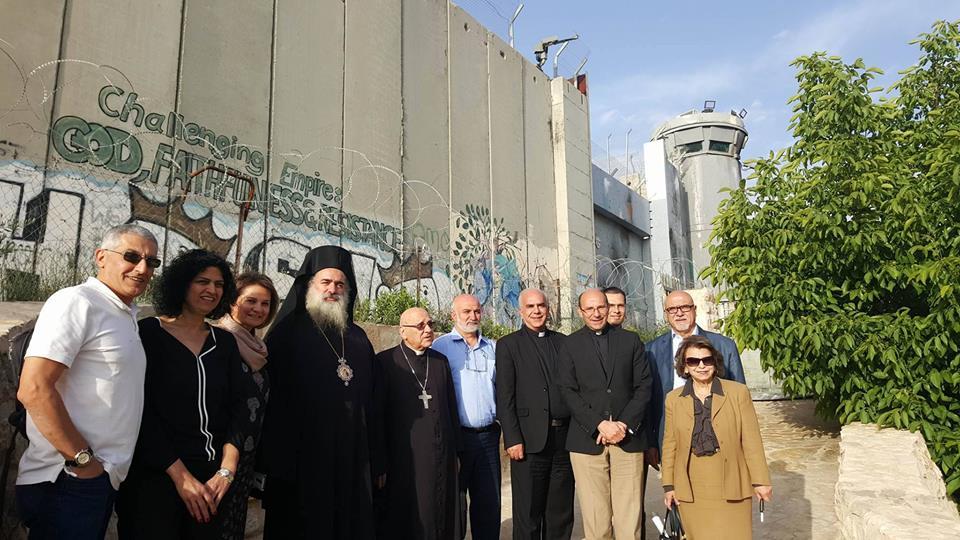The World Council of Churches (WCC) general secretary Rev. Dr Olav Fykse Tveit has expressed concern and sadness over the threats against Archbishop Atallah Hanna, he was poisoned in his church residence in Jerusalem in December.
The Head of the Sebastia Diocese of the Greek Orthodox Church in Jerusalem Archbishop Atallah Hanna was reportedly hospitalised on 18 December after being poisoned by chemical substances.
The Archbishop has been a strong critic of Israel and its treatment of Palestinians according to the International Law; he has also been outspoken about Israel’s activities inside neighboring Lebanon and Syria.
Reports said the Archbishop was rushed to hospital after a gas canister was fired into his church in Jerusalem. Director of Jordan Hospital, Abdullah Al-Bisher held a press conference on 29 December to talk about the results of the laboratory tests of the complex toxic substances to poison Archbishop Atallah Hanna.
Al-Bisher said that since the moment Archbishop Atallah Hanna arrived at the hospital, he was provided with the necessary treatment, as all required medical examinations were performed. He stressed that the health condition of Archbishop Atallah Hanna is currently stable.
Tveit expresses profound sorrow and prayers for Archbishop Atallah Hanna and his church.
“I condemn this violence unequivocally, as I do all violence between the peoples and communities of this region which has seen so much bloodshed in the name of religion,” said Tveit in his statement issued from the WCC headquarters in Geneva on 2 January.
Tveit also raised his concerns that Christians in the Gaza Strip was not allowed to visit holy cities such as Bethlehem and Jerusalem to celebrate Christmas.
“I am therefore also deeply concerned about the heightened tensions, some of an explicitly religious nature, which are being experienced in Jerusalem during the current time - and the risk that such tensions may spill over into further acts of violence or incitement,” Tveit added.
“The tensions and tragedies of this city, holy to Jews, Christians and Muslims, are a reminder both of the need for all parties to continue to work intensively for a just peace in Israel and Palestine, and of the vital place that Jerusalem itself plays in that longed for peace,” Tveit said.
“There has been too much prevarication, postponement and obstruction: all parties and powers need to work proactively to find a solution which will meet the demands of justice and the hopes of all people of good faith,” he stressed.
“The frustration over the failing peace processes, as well as the increasing settlements and continued occupation, will require new initiatives that can overcome the obstacles to peace and build trust in a common future,” Tveit concluded.
